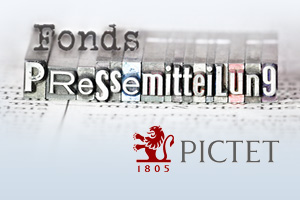Pictet | Frankfurt, 03.12.2014.
Equities to outshine bonds into year-end. “Lower oil prices and improving labour markets should boost consumer spending,” says Luca Paolini, chief strategist at Pictet Asset Management.
“We are maintaining our overweight position in equities as expectations for further central bank monetary support, falling oil prices and improving economic momentum in the US and emerging economies are likely to bolster risk appetite into the New Year. “In bonds, we maintain an underweight stance whilst overweighting the USD, but we stay neutral on cash. “Within equities, we have increased our allocations to consumer discretionary stocks to an overweight position from neutral. Consumer stocks should benefit from a fall in oil prices, as lower energy costs tend to boost household spending.
“US consumers are expected to lead the rise in expenditure although retail spending among European and Japanese households should also increase. “We are also maintaining our position in energy – despite the sharper than expected fall in oil prices, with limited scope for further falls we think the sector now looks attractively cheap. We have reduced exposure to technology stocks. “Regionally, we continue to favour European equities, although Japan is also starting to look appealing. While the euro zone economy has struggled, the investment climate should improve with the ECB becoming more aggressive in its bid to avert deflation.
“The positive effects of lower oil prices and a weak EUR should soon feed through to corporate Europe. As long as tensions between Russia and Europe do not escalate, exports from European companies should gather momentum, which should in turn boost corporate earnings. “Japanese stocks, meanwhile, are attractive on several fronts. First, export-oriented companies stand to benefit from the weak JPY, which is trading below its purchasing power parity rate for the first time. Second, domestic stocks should receive a strong boost from a change in investment policy at Japan’s biggest public pension fund, the GPIF, which is to increase its allocation to Japanese equities to 25 per cent from a current target of 12 per cent. “Third, the BoJ has expanded its bond purchase programme, which should prove supportive for growth. Lastly, reforms set in motion by Prime Minister Shinzo Abe promise to improve the country’s corporate governance. But with a general election looming, we believe the Japanese market is too risky to invest in at this juncture – once the poll is out of the way, we will reassess our stance.
“The US might also appear to be an attractive market – growth is picking up and it is home to a number of large companies that stand to benefit from an oil-inspired rise in consumer spending. Yet, US stocks are too expensive on the whole. “The prospects for local currency emerging market debt look especially promising now that China has shifted to a more dovish monetary stance, which should begin to provide support for the asset class. “China is at the beginning of a rate cut cycle and a growing number of emerging market central banks will shift to more accommodative monetary policy as a result. Emerging market currencies should also begin to recover.
“By contrast, valuations for investment grade European corporate bonds remain too high in our view. Even though the ECB may yet begin corporate bond purchases as part of its stimulus programme, the market has already discounted this possibility to a large extent, which leaves investment-grade debt vulnerable to a sell-off over the near term. “The yield differential between German Bunds and US Treasuries has grown to an unjustifiably high level. We are therefore positioning for a narrowing of the yield gap by shifting out of German government debt into US treasuries.”
The Pictet Group
Founded in 1805 in Geneva, the Pictet Group is one of the premier independent asset and wealth management specialists in Europe, with GBP272 billion in assets under management and custody at 30th September 2014. The Pictet Group is owned and managed by eight partners with principles of ownership and succession that have remained unchanged since foundation
Based in Geneva, the Pictet Group employs more than 3,400 staff. The Group has offices in the following financial centres: Amsterdam, Barcelona, Basel, Brussels, Dubai, Florence, Frankfurt, Hong Kong, Lausanne, London, Luxembourg, Madrid, Milan, Munich, Montreal, Nassau, Paris, Rome, Singapore, Turin, Taipei, Tel Aviv, Osaka, Tokyo and Zurich.
Pictet Asset Management (“PAM”) includes all the operating subsidiaries and divisions of the Pictet group that carry out institutional asset management: Pictet Asset Management SA, a Swiss corporation registered with the Swiss Financial Market Supervisory Authority FINMA, Pictet Asset Management Limited, a UK company authorised and regulated by the Financial Conduct Authority, and Pictet Asset Management (Japan) Limited, a Japanese company regulated by the Financial Services Agency of Japan.
At 30th September 2014, Pictet Asset Management managed GBP93 billion in assets, invested in equity and bond markets worldwide. PAM has seventeen business development centres worldwide, extending from London, Geneva, Frankfurt, Amsterdam, Luxembourg, Madrid, Milan, Paris and Zurich via Dubai, Hong Kong, Taipei, Osaka, Tokyo and Singapore to Montreal.



